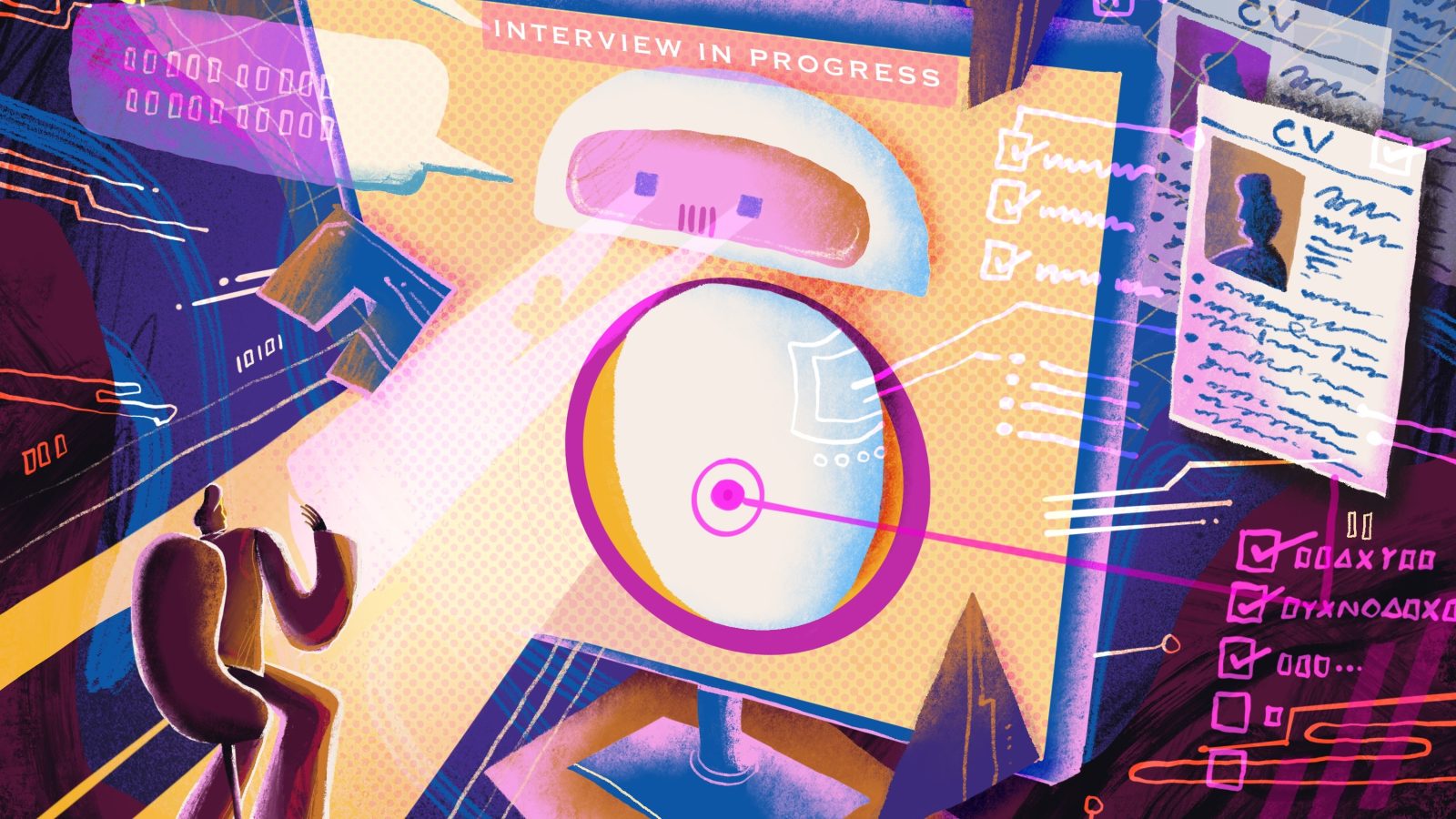Jobs
The AI job interviewer will see you now

When Floria Tan applied for an internship at China’s food delivery giant Meituan, her first video interview was not with a human being.
The interviewer certainly looked real enough. It was a woman, about Tan’s age, with a friendly smile — but her voice and manner were stitled and distinctly robotic. The interviewer gave a brief introduction about Meituan and asked a series of canned questions like, “What was a challenge you came across in the past?” After each answer, the interviewer would summarize what was said and offer a follow-up question.
The interviewer was an AI avatar, working from a list of pre-determined questions but using a large language model to generate authentic-sounding responses on the fly. But Tan told Rest of World it felt more like taking a written exam than having a conversation. “I didn’t take it as a real human,” she said. “I just looked at the camera and talked.”
Once seen as a curiosity, AI job interviews have grown in popularity as startups look to build businesses on top of the surprising capabilities shown by platforms like OpenAI. The industry is still small, and the jobs affected are often large-scale roles where companies need to sift through thousands of applicants at once. But as companies scramble for ways to integrate AI into their business, experiences like that of Tan are set to become commonplace.
“They don’t get angry or have a bad mood…it doesn’t matter what skin color you have, where you’re from, or what your accent is.”
The idea of using large language models to further automate the hiring process has already caught fire in the U.S. corporate world. A 2023 survey of 1,000 human-resources workers by the U.S. firm ResumeBuilder found that 10% of companies were already using AI in the hiring process, and another 30% planned to start the following year. The research firm Gartner listed natural-language chatbots as one of 2023’s key innovations for the recruiting industry, designating the technology as experimental but promising.
The practice now appears to be catching on in China and India. Alongside Tan’s experience, applicants at firms like Siemens, China Mobile, and Estee Lauder have recently reported AI-powered interviews in China, according to social media posts. (None of the three companies responded to a request for comment.) MoSeeker, a Chinese AI recruitment system provider, performs hundreds of thousands of automated interviews each year, and lists multinationals including Disney and Mars among its clients. Platforms like Talently.ai, Instahyre and Intervue are among a number of Indian companies using AI in the hiring process.
There are a variety of ways to automate the hiring process. The first step is simply to standardize the list of questions asked in the initial interview, a measure often adopted as an effort to fight cultural biases. Once the questions are standardized, there’s only minimal benefit to human presence. Companies often transition from in-person interviews to remote Zoom calls, then to a pre-recorded video of a human, and finally to a fully computer-generated avatar. A Harvard Business School article described this range of options as “the depersonalization spectrum.”
The rise of generative AI platforms like OpenAI and Anthropic allows companies to automate the process even further, adding responsive follow-up questions through the platforms’ natural language systems. Talently.ai is one such service, converting interview answers into text and using prompt engineering to generate a response. Founder Qasim Salam told Rest of World his company can save clients as much as 80% of the work hours necessary to fill a role.
Salam is confident that AI interviewers are less biased than humans. “They don’t get angry or have a bad mood when they’re conducting these interviews and disregard a candidate because of that,” he said. “It doesn’t matter what skin color you have, where you’re from, or what your accent is … So it purely assesses candidates on merit.”
“The more data we give it, the more potential there is for bias.”
AI hiring firms tout their ability to closely match the hiring preferences of their clients. Sarbojit Mallick is the co-founder of Instahyre, a New Delhi-based HR startup that uses AI to match candidates with employers. Mallick told Rest of World that companies have different requirements for different regions: For instance, when Uber hires Indians for their U.S. office, they look for more systems-oriented professionals. “But in India, when they were starting up their offices in Hyderabad and Bengaluru, they were looking for startup enthusiasts.” Mallick said that a successful model is one that can learn those preferences and incorporate them — even in cases where companies may not be aware that they were seeking a particular profile.
This raises the specter of incorporating bias into the hiring model. But Mallick insists that, in straightforward cases of discrimination, Instahyre takes a different tack. “For certain roles, recruiters assume that only men will be fit for it, not women, which is completely wrong,” he said. “So in such cases, we train our AI model to remove such biases.”
For experts, those measures aren’t enough to keep bias from creeping into the training data. Hilke Schellmann, who studies algorithmic bias with the Pulitzer Center, told Rest of World the lack of transparency is the most alarming aspect. “I would hope that recruiters and hiring managers have clear rubrics and ways that they assess people,” she said. “But we don’t know what ChatGPT assesses people on in these systems.” (OpenAI did not respond to a request for comment.)
That doesn’t mean skeptics like Schellman think AI systems couldn’t have a role in hiring, but she wants to see more safeguards before they do. “What these companies need to do is put out very clear technical reports to show us: This is how we built the tool, this is how we made sure it’s valid. It actually tests for the things that we need in this job. And here’s how we did bias mitigation,” Schellman said. “So far, I haven’t seen any technical reports of that kind.”
She is also troubled by the focus on scale. While the system requires training data to improve, the flood of data often makes it harder to interrogate why a particular decision is being made. “In hiring, more data isn’t always solving the problem,” said Schellman. “The more data we give it, the more potential there is for bias.”
In the meantime, some candidates are trying to game the system by turning to AI themselves. On Chinese social media, entrepreneurs are peddling AI services that promise to help people answer interview questions in real time. Shanghai-based Carlos Chen launched Whisper Interview in April, which records interview questions and generates answers through GPT-4o for candidates to read out. It now has nearly 10,000 users — Chen claimed that some of them had passed interviews with its help.
Chen told Rest of World his service simply helps candidates navigate highly bureaucratic interviews that do not reflect their actual work capabilities. “This product shows my personal disdain towards the capitalist recruitment mechanism,” he said.










